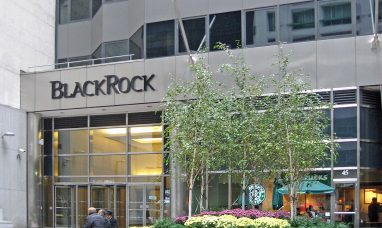The Charles Schwab Corporation (NYSE:SCHW) unveiled its Q3 earnings report today, showcasing remarkable growth in asset management that has caught the attention of investors. Additionally, the adjusted net income exceeded initial projections, making SCHW stock an appealing option in the market.
Schwab reported an adjusted diluted earnings per share (EPS) of 77 cents, surpassing analyst expectations of 74 cents for the quarter. The company also achieved success in expanding its assets under management, leading to a notable 16.9% increase in asset management fees, which now stand at $1.224 billion, compared to $1.047 billion last year. However, the net interest revenue dipped from $2.926 billion to $2.237 billion, ultimately resulting in a lower total revenue of $4.6 billion, down from $5.5 billion in the same quarter last year. This dip aligns with the consensus among analysts, who anticipated $4.61 billion in Q3 revenue.
Despite the revenue decline, Schwab reported a commendable 14% return on average equity (annualized) for the quarter, demonstrating robust performance for a company that has experienced a substantial drop in revenue.
Attractive Valuation As of October 16, SCHW stock is trading at $53.97 per share in morning trading, marking a nearly 20% decrease from its value just three months ago when it was priced at $67.20 on July 20. The current valuation appears to be attractive, especially when considering the forward-looking projections from analysts. They anticipate EPS of $3.17 for 2023 and $3.97 for 2024, resulting in a forward multiple of 17x for 2023 and 13.6x for 2024, with an average forward P/E of 15.3x over the next 12 months.
This valuation is considerably below Schwab’s historical averages. For example, Morningstar reports an average 5-year price-to-earnings (P/E) multiple of 18.59x, suggesting that SCHW stock has the potential to increase by 21.5% from its current valuation to reach $65.57 per share, approaching its previous summer highs.
Generating Income through Shorting OTM Puts With this in mind, selling short out-of-the-money (OTM) put options appears to be a promising strategy to benefit from the stock’s potential upward trajectory while generating extra income. For instance, put options with a $47.50 strike price expiring on November 17 are trading for 51 cents per contract. This allows short sellers to earn an immediate 1.073% yield (i.e., $0.51/$47.50).
Furthermore, this strike price is over 11.4% below the current spot price, offering substantial downside protection for those selling these puts short. On an annualized basis, investors can expect a return of 12.876% if this strategy is executed every month over the next year, significantly enhancing the stock’s current 1.73% dividend yield.
For investors willing to take on more downside risk, shorting the $50 strike price expiring on November 17 is an option. The premium received from this short sale is 92 cents, with the strike price standing 6.77% below the current spot price. This represents an immediate yield of 1.84%, or over 22% on an expected return basis over the next year, making it an attractive opportunity for put option short sellers.
In conclusion, Charles Schwab’s impressive earnings report, coupled with its undervalued stock price, presents enticing opportunities to generate income by selling short out-of-the-money puts.
Featured Image: Unsplash @ PiggyBank















